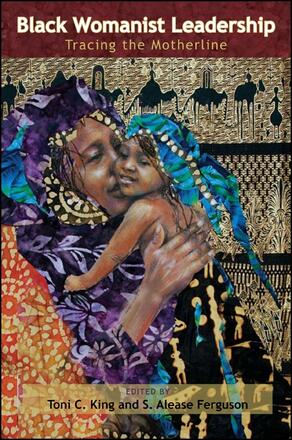
Black Womanist Leadership
Tracing the Motherline
Alternative formats available from:
Collection of Black women’s stories that show how leadership values are transmitted from mothers to daughters
Description
Featuring the stories of fourteen Black women scholars, Black Womanist Leadership: Tracing the Motherline offers a culturally based model of Black women's leadership practices, and examines the mother-daughter transmission of these skills. The personal narratives fit into a storytelling tradition that reveals the ways Black mothers and women of the community—the Motherline—teach girls the "ways women lead. " The essays present a range of different practical and theoretical issues of leadership and development, including mother nurture, emulation of and divergence from core values, internalized oppression, self determination, representation of the physical self, guardianship/governance of the body, cooperative economics, activism, contentiousness with or differentiation from the mother, and negotiation of leadership across public and private spheres. Together, they make a compelling argument for the necessity of continuing to teach the cultural and gender-specific resistance to oppression that has been passed along the Motherline, and to adapt this Motherline tradition to the lives and needs of women and girls in the 21st century.
Toni C. King is Associate Professor of Black Studies and Women's Studies at Denison University. S. Alease Ferguson is Director of Family Services for the Cleveland Urban Minority Alcoholism and Drug Addiction Outreach Program.
Reviews
"This book explicates the nuances of leadership for Black women in ways that are typically ignored in the general literature, and the importance of the Motherline is finally given the attention it deserves. " — Beverly Greene, Professor of Psychology at St. John's University, and coeditor of A Minyan of Women: Family Dynamics, Jewish Identity, and Psychotherapy Practice
"This stunningly masterful volume represents a foundational text in the study of Black women's leadership development. Its implications are far reaching, particularly as it suggests womanist (and Black feminist) thought on the Motherline as a location for theorizing gender progressive notions for leadership strategies for males who reject a patriarchal vision of men as 'natural' leaders. " — Gary L. Lemons, author of Black Male Outsider: Teaching as a Pro-Feminist Man